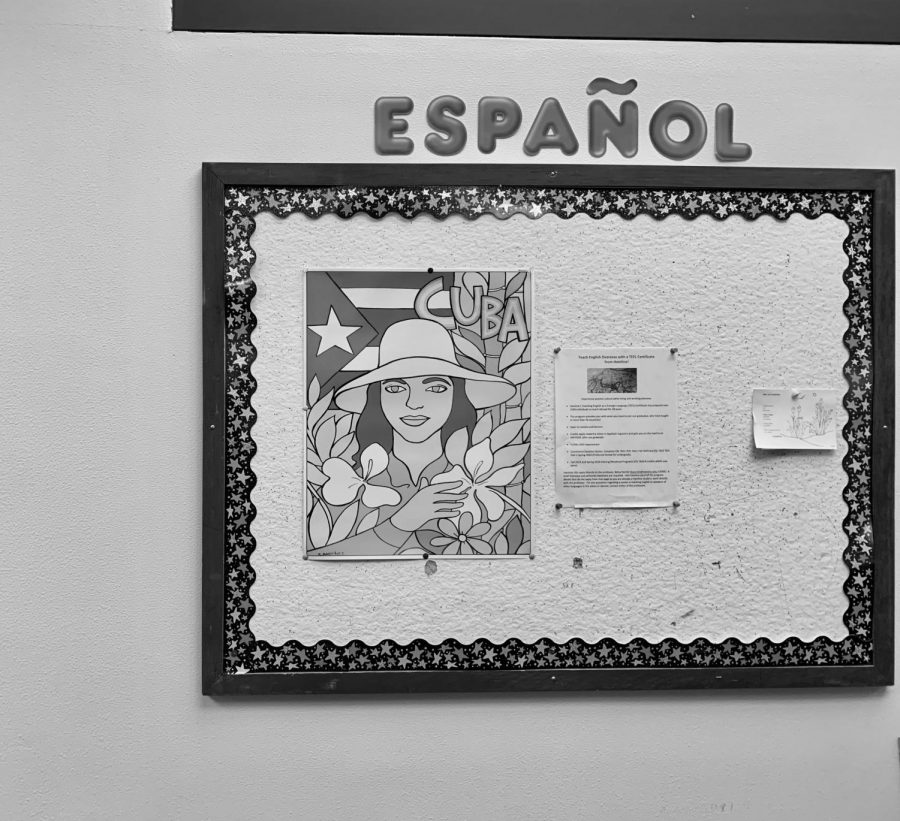The incredible shrinking Modern Languages department?
With the sunsetting of German, Spanish is set to become the department’s only major.
Emily Lall
German is no longer being offered as a major or minor at Hamline, but courses are still going to be offered this next academic year.
May 8, 2021
Barely a decade ago, Hamline’s Modern Languages and Literatures Department offered three majors: French, German and Spanish. French was cut in the early 2010s, however, and recently the department announced that the German major and minor was being phased out.
“Learning another language requires the commitment of time and energy, and I think a lot of students are deciding that they may not have that time, or they may not be able to make that commitment,” department chair Shannon Cannella said of this decision. “The budgetary pressures already existed, and then you have COVID overlaying everything.”
With this development, Spanish will become the only modern language a Piper can major in without taking courses through the Associated Colleges of the Twin Cities. Chinese is also offered as a minor.
“It… becomes more of a Spanish department than a languages department, if Spanish is the only [major] offered,” junior Katy Boese, a Spanish major, said.
The department currently employs three full-time professors, a drop from seven in 2006, and an unprecedented low in terms of both faculty and offering numbers.
“Languages have been taught [at Hamline and liberal arts colleges] from the beginning,” said F. Garvin Davenport, a retired Hamline professor, dean and vice president. “In the early days Hebrew [and] Greek, possibly because of the training of ministers.”
Russian and Italian were also offered at Hamline for brief periods, in the late 1980s and from 2003 to 2008, respectively. During a recent program review, the department was advised that adding an Arabic major or minor might be beneficial, but there are no concrete plans at the moment to manifest this.
“We would need to carefully assess student demand and logistics before rolling out any new language program,” Spanish professor Andrea Bell said. “It would have to be sustainable and probably start small, at the certificate level… due to the uncertainty of the present time, with the university’s COVID-19 response at the forefront of decision-making, this move is on hold for the time being.”
With that, Bell expects that Spanish and Chinese will continue to be Hamline’s only modern language offerings as a major or minor. However, the department is optimistic about its future and is taking the shrinkage as an opportunity to rebrand.
Bell pointed out that 84% of employers want to hire Spanish speakers and 34% seek Chinese speakers, according to a 2019 survey from the American Council on the Teaching of Foreign Languages. She expressed interest in integrating Hamline’s language offerings with other professional paths.
“As sad as it is to phase out the German major and minor, it’s exciting for Modern Languages to find better ways to connect with future students,” Bell said. “We’re exploring new programs, like Spanish and public health or Spanish and criminal justice.”
Bell added that the Chinese minor may be marketed to offer two tracks, language proficiency and cultural fluency. She also expressed interest in setting up a proficiency certification program for commonly-spoken languages in the Twin Cities area, like Hmong and Somali.
Spanish professor Maria Jesus Leal said that a name change for the department may also be underway.
“We are having conversations about a different name for the Modern Languages department,” Leal said. “We will continue supporting programs and encouraging students to study abroad in countries where the target language is [spoken].”

Spanish is the last remaining language major at Hamline. With two full-time faculty to teach the subject, the language is well supported.







